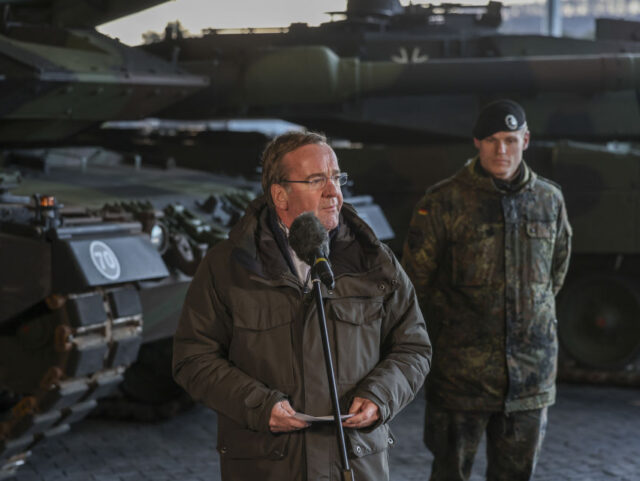Germany’s defence minister presented a less alarmist take on the Russian threat than some NATO colleagues, saying that while society has to “wake up” to the threat, a Russian attack on NATO is not likely at the moment.
European military leaders seem to be singing from the same hymn sheet, with politicians and generals following one another in rapid succession in recent weeks to warn of war with Russia in five to ten years.
Germany’s Boris Pistorius has followed suit, speaking to newspaper Der Tagesspiegel in an interview marking his first anniversary as national Defence Minister, quoting experts warning of a Russian attack.
Yet, Pistorius’s comments were less strident than others, including the senior military officer in NATO Admiral Rob Bauer, who told journalists this week he saw it as a positive if civilians felt compelled to buy preparedness supplies after hearing the remarks of military leaders, saying society needs to change its attitude towards war. Instead, Pistorius said that while there was a Russian threat in Europe that hadn’t been seen for decades, “At the moment I don’t think a Russian attack is likely.”
Citing his own military experts, the German defence boss said they expected a “a period of five to eight years in which this could be possible”, saying it was understandable that a country like Sweden had made more alarmist noises of late, because their geography — much closer to the Russian border — puts them “in an even more serious situation”.
This week, alleged German military planning documents were reported as leaked in Europe’s largest newspaper. They prognosticated an alarming escalation of violence in Europe including a renewed Russian assault on Ukrainian capital Kyiv. In the papers, Moscow was also predicted to provoke fabricated border clashes with European states, and finally stage an invasion of NATO member state Poland to seize the strategic Suwałki Gap.
Pistorius appeared to tacitly acknowledge the leak in his remarks to Tagesspiegel while making clear they may not have been planning assumptions, but rather one of a range of scenarios considered.
He told the paper when asked what Germany was preparing for: “We examine both likely and maximum risk scenario… of course, we have a duty to think through worst-case scenarios – if only to know where our deficits would be in an emergency and where we need to prepare better.”
In terms of what he believes must be done, the politician — who as noted by the publication is more popular than German Chancellor Sholz and is seen as a potential shoe-in to replace the chancellor — said it was time to “wake up society” and make Germany “war-ready” [“kriegstüchtig”]. Some of this means increasing civil protection and preparedness, which he said would serve deeper purposes than simply being ready to face down Russian aggression.
“To put it simply: If I know my roof is leaking, I need to fix it immediately before the next rain comes”, he remarked.
In all, Pistorius said, the key to the coming years is deterrence, not “toughness”, and in remarks that may sound like a rebuttal to other European statesmen and military officers, “Alarmism is also wrong”. The interview, after all, comes amid a flurry of predictions of either impending of medium-term war with Russia, ranging from Russian aggression in Europe in three years from Poland, possible world war on four fronts in five years from the United Kingdom, and an unsettled 20 years from NATO command.

COMMENTS
Please let us know if you're having issues with commenting.